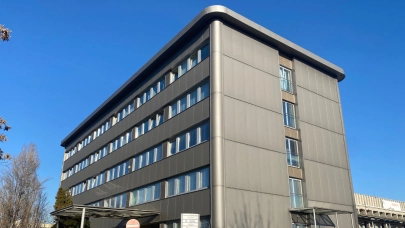
It has been a busy year for the European Commission’s corporate accountability initiatives, including updates to the EU Sustainable Finance portfolio. These policy changes, reflecting the Commission’s focus on improving the energy performance of the EU building stock, are consequential for EU real estate investors and developers. New sustainability-linked financing models and Environmental Social and Governance (ESG) ratings standardisation complement the European Green Deal by directing financing to real estate construction and renovation that maximises energy performance. These programs enable EU real estate investors and builders to collaboratively reduce energy use and meet the EU Climate Law’s 2030 goal of reducing greenhouse gas (GHG) emissions by fifty-five percent. Strategic policy and research consultant Lisa Chase has summarised the policy framework for Property Forum.
Enacted in 2021, the SFDR requires private sector banks, financial advisors and investors operating in the EU, regardless of where they are headquartered, to report on the comprehensive climate impacts of certain investment categories. This means that the real estate projects they invest in throughout the world need to measure and report comprehensive ESG impacts to their funders, including operational energy use, waste production and resource use. EU-operating investors must also identify and report “low-performing” energy-inefficient real estate projects, including those outside of the EU. The EU Taxonomy provides the framework to assess a real estate project’s sustainability factors, while the Regulatory Technical Standards provide the template to evaluate an investment portfolio’s holistic sustainability impacts. Because the SFDR is a regulation that imposes fines for non-compliance, investors are highly motivated to collect operational energy and resource use from investees. The SFDR integrates with the Corporate Sustainability Reporting Directive (CSRD), which took effect this year and requires large companies to measure and report comprehensive ESG impacts throughout their supply chains. The CSRD is intended to enable investors to accurately assess investee projects’ environmental and sustainability impacts, including commercial and residential real estate.
Because energy-efficient “green” buildings attract higher lease and sale rates, they have long been attractive to global investors. Additionally, EU investment vehicles with sustainability or ESG-related objectives are very marketable, increasing the investment appeal of highly energy-efficient new and renovated buildings. Since financial institutions must evaluate projects for climate impacts, developers need to demonstrate exemplary and quantifiable energy performance to attract financing. To facilitate energy and resource-efficient building investment, the Commission’s sustainable finance updates standardise private sector lending terms for sustainability-focused products, including the newly established Green Loan and Sustainability-Linked Loan. The European Central Bank has announced that it and the national banks it supervises will also assess climate impacts as lending criteria, giving EU real estate developers a clear mandate to renovate and build for maximum and quantifiable resource efficiency.
To further empower financers to evaluate the environmental impacts of potential investments, the Commission’s sustainable finance updates include a proposal to regulate the EU ESG ratings market. The ESG regulations will increase oversight of ESG ratings providers and improve the transparency of their methodologies and data sources. Standardised ESG ratings will help provide real estate investors with a clearer picture of projects’ environmental and climate impacts. Following on the ESG ratings proposal, the Commission also announced new sustainability reporting standards, which will provide the framework for large companies to comply with CSRD disclosures. Together these policies will enable SFDR compliance and strengthen the sustainability ecosystem for all sectors, including real estate.
With the expanded sustainable finance initiatives, the Commission has signalled that it will scrutinise financial institutions’ SFDR disclosures, tighten reporting rules and audit the validity of banks’ portfolio sustainability and “green” claims. This means that investors will be more rigorous about collecting portfolio data, including from new and renovated real estate. The primary takeaway for the EU real estate sector is that accurate measurement and reporting, particularly for operational energy use, is crucial for securing funding from EU-operating banks. Investors will push real estate projects for more detailed and audit-ready data, to demonstrate their SFDR compliance, and real estate developers and managers will need to look beyond green building certifications to ensure that labelling systems are supported by robust data. Likewise, as the Commission’s new ESG standards evolve, financial institutions must ensure that ESG-labelled funds align with the SFDR and Taxonomy requirements. The Commission’s focus on sustainable finance, combined with the alignment between EU private and central bank lending, promises to make EU finance a driving force for building energy efficiency across the European and global real estate sector.

Lisa Chase
Strategic Policy and Research Consultant
Lucky Fish Research and Communications



